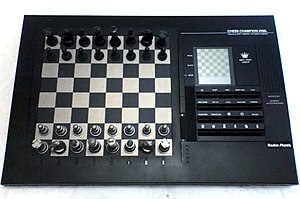Fourteen years ago tomorrow,
Gary Kasparov became the first reigning world champion chess player to lose to a computer under normal chess tournament conditions. On Feb. 10, 1996, IBM's
Deep Blue chess supercomputer defeated Kasparov in the first game of a six-game match before being routed four games to two overall. Deep Blue, after some upgrades, went on to defeat Kasparov in a similarly orchestrated match in 1997, thereby "ending" the undisputed dominance of humans over machines in world-class chess.
Of course, there's almost nothing "undisputed" about the previous sentence. The
Kasparov/Deep Blue rivalry has its own chess subculture and sordid history, with some claiming it was a triumph in computing prowess, while others see it as a jury-rigged publicity stunt designed solely to boost IBM's stock price. The documentary film
Game Over: Kasparov and the Machine is perhaps the most high-profile examination of this rivalry, though it is but one of many emotional and perhaps less-than-objective accounts of the events.
What makes this issue so contentious is that chess is perhaps the ideal human vs. machine intelligence contest. Chess is so mathematically complex it cannot (as yet) be rendered a
solved game, which is a term for any game which has a methodical, reproducible strategy for achieving at worst a draw every time it is correctly used. Put more simply, there are so many possible moves in any game of chess that not even the most powerful supercomputer on Earth could efficiently model them all. Thus, computers -- like humans -- can only anticipate a limited number of moves in advance and must develop an ever-shifting strategy to defeat a capable opponent. You must think on the fly to win at chess.
Today, it is generally conceded that even consumer-grade computer hardware can model enough moves in advance of any given chess position to consistently outplay all but the most skilled human chessmasters. Even under tournament conditions where human players are given access to the computer's
opening book -- the equivalent of watching game film on a human opponent to note tendencies and styles -- chess programs can now brute-force their way past most human players.
This is quite a stretch removed from the first computer ever to defeat a human opponent at chess, when the machine needed to significantly modify the game and the conditions of the contest to win.
What computer was the first to defeat a human opponent at chess?












